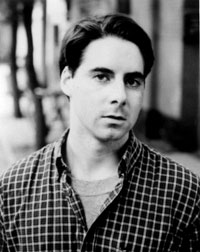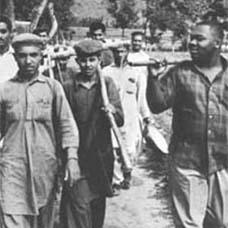
There are parallels with the career of Peter Hessler, another American author who has brought China to life in an autobiography.
The chaos years
By Victor Mallet
Published: January 21 2005 12:51 | Last updated: January 21 2005 12:51
books chinaSouth of the Clouds: Exploring the Hidden Realms of China
by Seth Faison
St Martin’s Press $24.95, 278 pages
ADVERTISEMENT
Seth Faison, who became the Shanghai bureau chief of The New York Times, began to understand China not as a journalist in Beijing but as a lonely language student in Xian. He became a reporter later, concocting a fictional curriculum vitae to get a job at the Hong Kong Standard.
There are parallels with the career of Peter Hessler, another American author who has brought China to life in an autobiography. Hessler became a journalist after teaching English as a Peace Corps volunteer in the remote Sichuan town of Fuling, and went on to produce the evocative memoir River Town: Two Years on the Yangtze.
Both writers, as they struggle to learn and eventually master the Chinese language, have the gift of being able to translate their personal experiences into a broader understanding of China and its hectic modernisation after the death of Mao Zedong.
Early on in South of the Clouds, Faison explains how he managed to persuade Old Yang, the guard at the student dormitory and the local eyes and ears of the Communist Party, to look out of the window when Faison wanted to sneak a girlfriend into his room. Yang, writes Faison with characteristic pithiness, “was the dirty, ill-cut fingernail at the end of the long arm of the state”.
Faison is brave, not for what he did in his 12 years in China, but for what he tells us about it afterwards. He is frank about his ambiguous sexuality, his visits to “Sauna Massage” parlours in obscure Chinese towns and his relationship with Jin Xing, a choreographer who had changed sex from male to female and was the first Chinese transsexual to speak publicly about the operation.
Jin’s life is only one facet of a rapidly changing China, a much bigger social, political and economic story that Faison captures with admirable clarity. His terse, first-hand description and analysis of protests in Tiananmen Square in 1989 is contemporary history at its best.
Today, Chinese leaders and their sycophantic allies in Asia insist that the Tiananmen demonstrators were hell-bent on destabilising China, while the popular view in the west is that the protesters were all heroic democrats crushed by a monolithic state. The real fight, as Faison explains, was more complicated and more interesting: it was not between the students and the authorities, but inside the communist leadership. While his sympathies lie with the protesters, Faison recalls that the demonstrations soon lost their focus, even as they spread to other parts of China. Extremist student leader Chai Ling defended her right to take money sent by sympathisers, “saying she needed it to fund her own escape from China and to have plastic surgery to make her eyes more round, which she said was for her own security”.
Faison is probably wrong to say that the crackdown backed by Deng Xiaoping ruined Deng’s reputation as a pragmatic reformer. Hessler, witnessing the grief of the Chinese at Deng’s death eight years later, is closer to the mark. Yet Faison the journalist in the 1980s and 1990s was right to insist - in the face of simplistic western views to the contrary - that China was being transformed from a tightly restricted police state into “a chaotic and semi-modern country at the turn of the century, an immeasurably freer place to live”.
That is where China is now, perched uneasily on the brink of the political reform that will inevitably follow the social and economic upheavals of the past 25 years. Faison’s insights into the odd mixture of nationalism, insularity and insecurity of the Chinese character allow him to make blunt assessments about Chinese culture, a difficult task for a Chinese author and a rash undertaking for a less-informed or unsympathetic outsider.
By the end, it seems only slightly strange that Faison claims to have found peace and understanding on a Tibetan hillside. He witnesses a “sky burial”, the Buddhist ceremony in which a corpse is chopped up, fed to the vultures and thus recycled through the heavens and the earth. For a journalist, this is obviously a good story, but his personal enlightenment is less easy to understand. One senses that Faison was tired, for the time being, of China. He was looking for an end to his tale, while knowing full well that the story of modern China was only just beginning.
Victor Mallet is the FT’s chief Asia correspondent.











